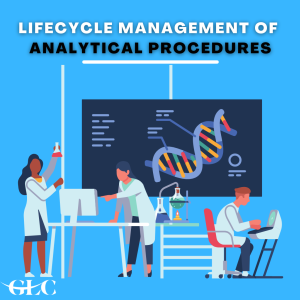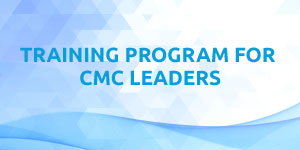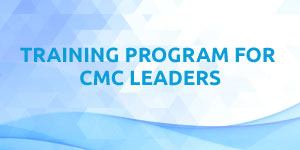Free knowledge to monitor the world of events. Have a look at our must read Blogs on Pharma, Finance, HR, Health and Cross Industry.
Lifecycle Management of Analytical Procedures
2022-08-16
Achieving Quality and Conformity
The Analytical Procedure Life Cycle (APLC) is an essential framework employed in the pharmaceutical and biotech industries not only in the development and validation of the methods. Continuity is achieved to guarantee the consistency in quality, accuracy and reliability of the outcomes. According to the survey conducted in BioPhorum across 91 participants in the year 2022, it was found that more than forty percent of companies dont know how to address method robustness after validation, hence addressing the importance of method lifecycle management.
In this article, well explore three key elements of APLC management: continuous monitoring and control post-validation, change management and revalidation, and risk management from the life cycle. The above strategies can help a laboratory to achieve a level of consistency to avoid complacency, be in compliance with the FDA and EMA and improve operations.

Overseas Monitoring and Control After the Validation
Thus, it is critically important to check the selected analytical methods constantly once they are proven to be effective for the analysis of biochemical objects. Pharmaceutical Technology pointed out that 30% of method deviations are detected at System Suitability Testing (SST) and through trend analysis. Strengthening monitoring over enables the attainment of periodic correct method compliance while eradicating chances to errors.
Key Continuous Monitoring Components:
System Suitability Testing (SST): Routine SSTl; checks not only that the analytical system is in order before sample analysis starts, but also enables the users to establish a routine. The best kind of System Suitability Test failures is the proactivity, which makes up to 15-20% of method deviations, can be decreased by 50% (FDA).
Trend Analysis: In this way, identification of potential problems can occur by monitoring fluctuations in method performance. In general, it has been noted that; aims and objectives are achieved, the signaling and communication, if effectively developed can save time, and that control charts and other statistical tools have been known to cut down method variability by 35% (ISPE 2023).
Periodic Review: The gradual changes in the performance of a particular method can also be noticed when the performance is checked frequently. In the Journal of Validation Technology, it was ascertained that variability in laboratory performance could be cut by 25% though conducting regular reviews. In addition, as in the ICH Q12 guidelines, its stated that monitoring can help in the decrease of revalidation cases as well if done periodically.
Change Management and Revalidation
Changes to the laboratory setup are always bound to occur and may affect the performance of a method by introduction of new reagents or updated equipment. A 2021 Deloitte survey also revealed that 65% of the firms stated that performance changes occurred because of bad change management plummet.
Key Change Management Steps:
Impact Assessment: Sometimes changes are qualitative like in the type of regression used, while others are quantitative such as changes in degree of freedom that may affect measures of accuracy, precision, and robustness. Er et al, in his study carried out in 2021 highlighted that comprehensive assessments could help cut down the revalidation time by 20%.
Documentation: Documentation is a very important aspect that must be done correctly. Facilities that capture documentation information recorded significantly fewer compliance concerns and are 30 percent cheaper on revalidation than those with limited documentation information (ISPE).
Revalidation: Wherever changes have been made revalidation guarantees that methods continue to achieve the performance criteria meant. According to the FDA, about 50 % of method updates mean partial re-validation thus minimizing the time and intensity exerted.
Managing Risks at the APLC
A number of risks inherent in the various methods are as follows; Proactive risk management can reduce the chances of method failures. In PwCs report of the 2022 global survey, the authors observed that implementing risk management programs led to a 60% decline in method failures.
Risk Management Strategies:
Risk Assessment: Most essential is threat exposure, for instance, equipment malfunction, or peoples mistakes. FMEA tools assist in mitigating critical deviations to an extent of 50 % (Journal of Quality in Analytical Chemistry).
Risk Control: The additional measures, that can be taken for gaining control, inclusive of enhanced overseer and modification of method parameters, enhance the reliability of the method to a greater extent. As per the ICH Q9 guidelines, the right risk control can also give boosts the performance by up to 40 percent, ISPE.
Risk Review: Periodically review the risk profile so that further guarantees of the efficiency of risk controls are provided. International regulatory authorities claim that fresh risks analysis, at least once per year, can cut method failures by 30%.
Conclusion
There is also the need to engage proper lifecycle management for analytical procedures in order to ensure continuous delivery of accurate and precise methods throughout their life cycle. Further, constant practice preserves methods' validity once they are validated, and shift and revalidation protect against distortion effects. Also, the risk management approaches work ahead of time in case of any challenges. The ISPE 2023 report highlights that the organizations that have adopted these practices experienced a decline in method failure by 40 percent as well as compliance with the regulations in audits.
These strategies can be adopted in the APLC for laboratories to deal with different strategies in having sound, compliance, and efficient methods employed to meet the required standards of pharmaceutical and biotech firm.
Join our Pharma Masterclasses to gain cutting-edge insights and practical skills from industry experts. Register nowto stay ahead in the pharmaceutical world!
Conference Alert:Key Aspects of Analytical Development | 27-28, November 2024 |CONTINENTAL HOTEL BUDAPEST, Budapest, Hungary
By Sasly Ahmeth, Social Media Executive, GLC Europe, Colombo Office, Sri Lanka.
Get a feel for our events

Training Program for CMC Leaders - EU edition
14th September 2026 - 09th April 2027
Rich with practical insights and real-world applications
learn more >>
Training Program for CMC Leaders - US edition
14th September 2026 - 09th April 2027
Rich with practical insights and real-world applications
learn more >>
Advanced Stability Testing of Pharmaceuticals MasterClass - US edition
24-27 February, 2026
Increase the likelihood of studies receiving regulatory approval
learn more >>












